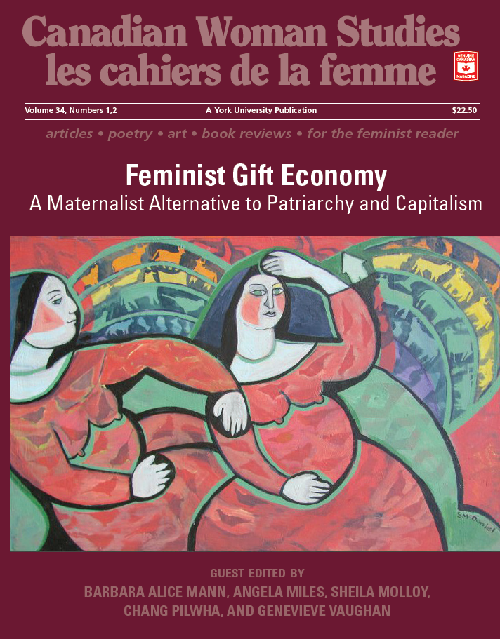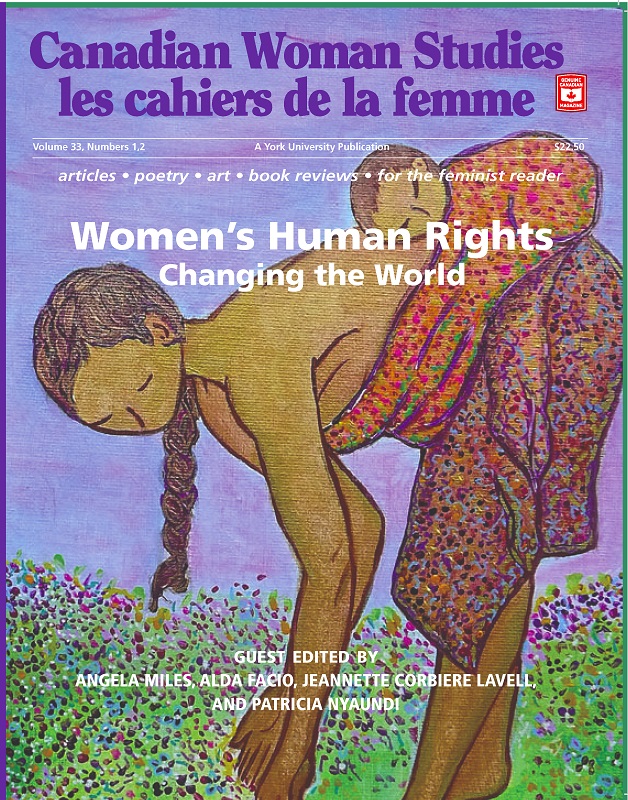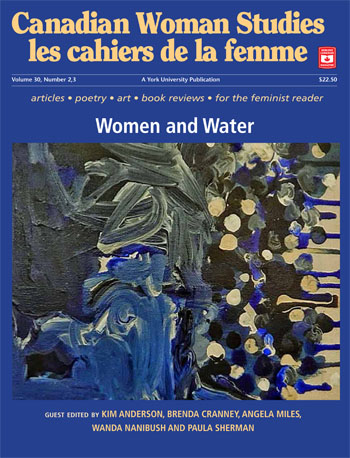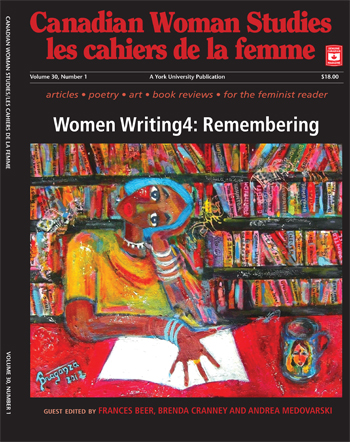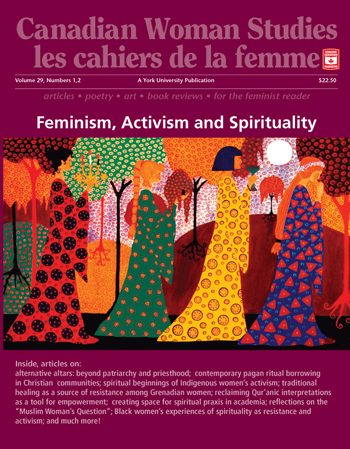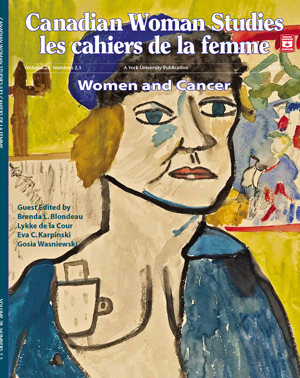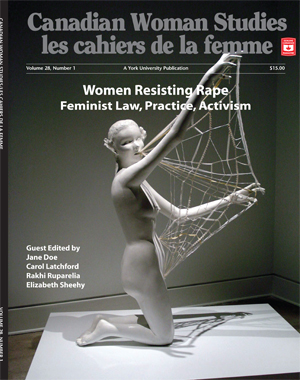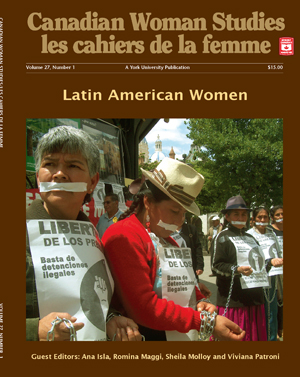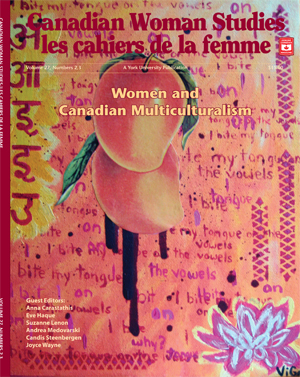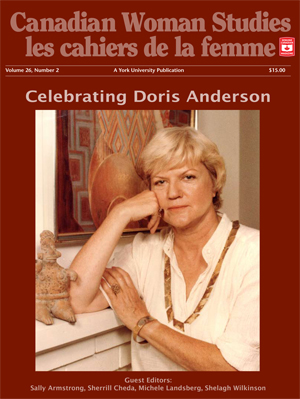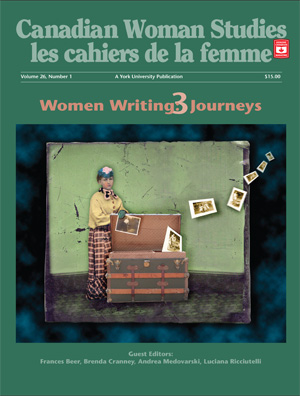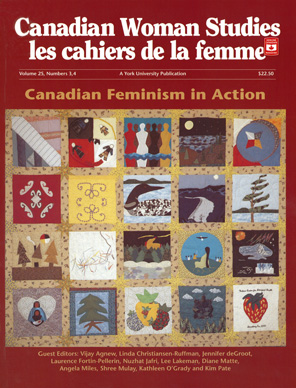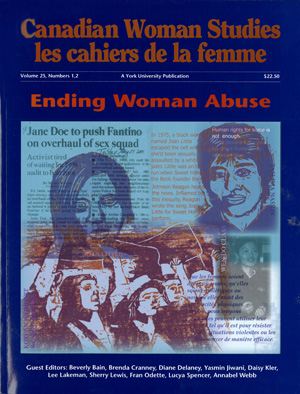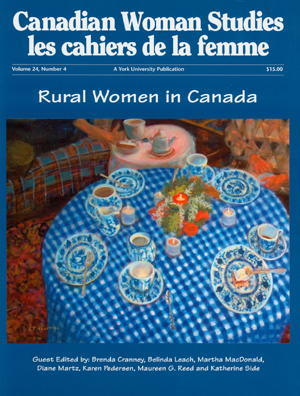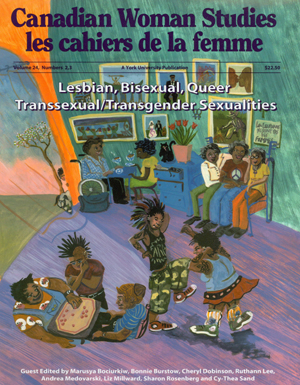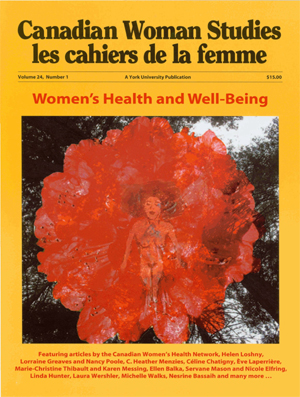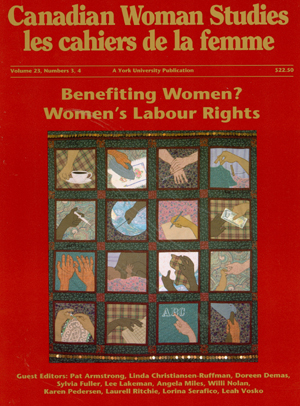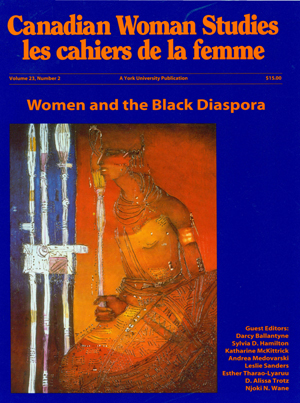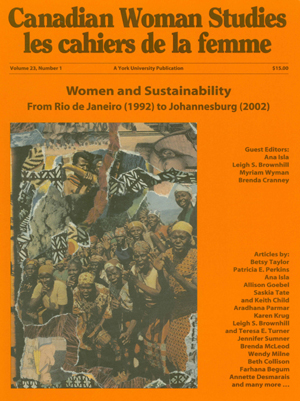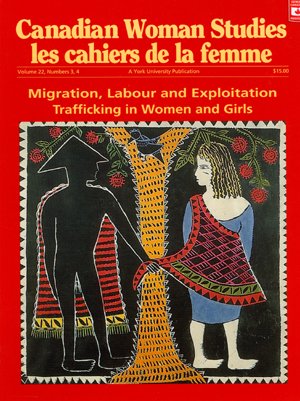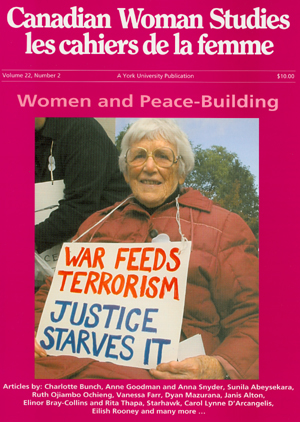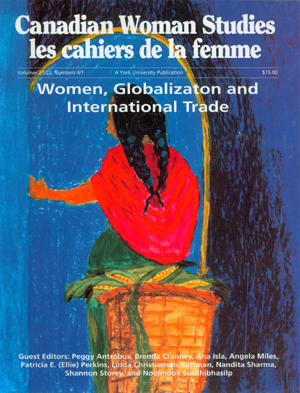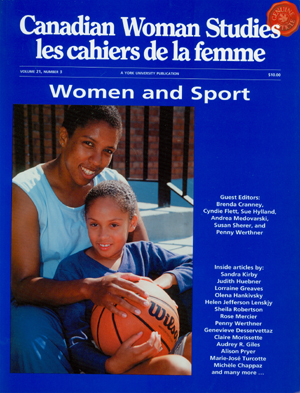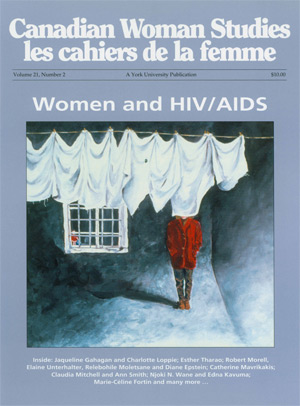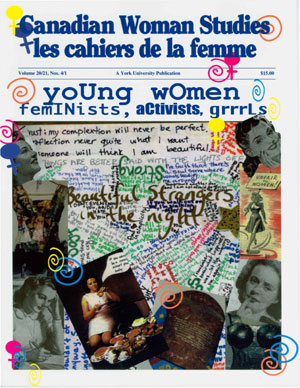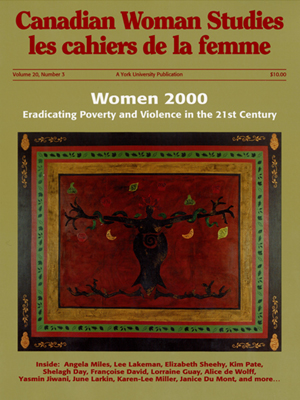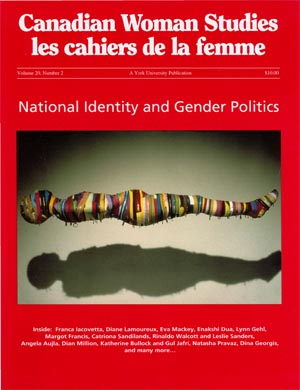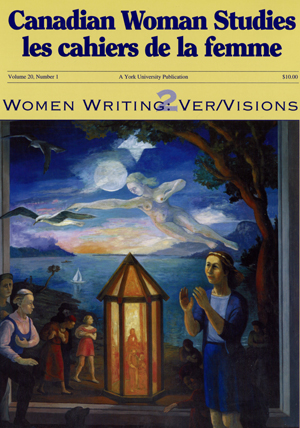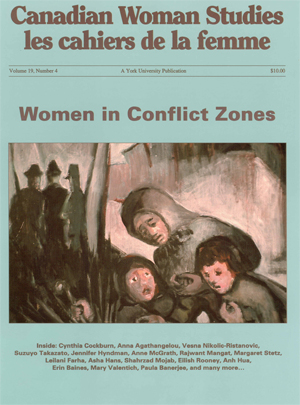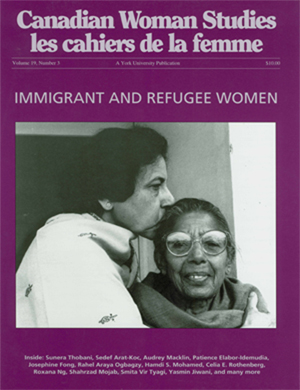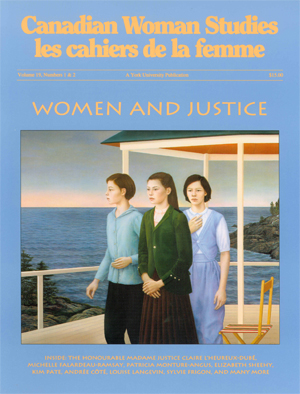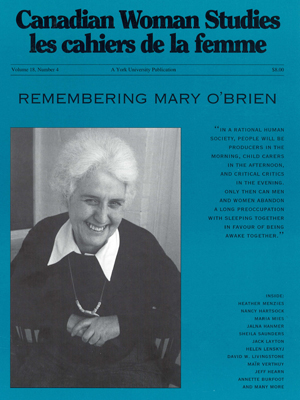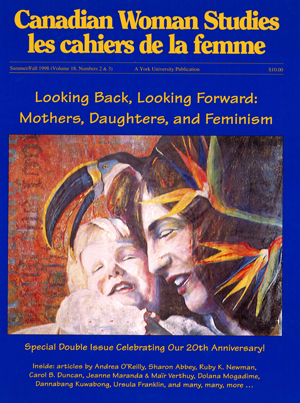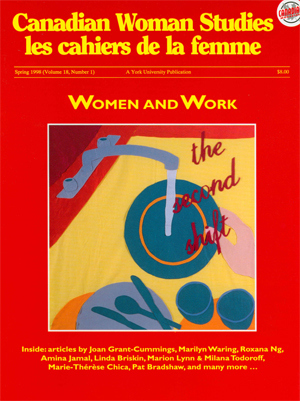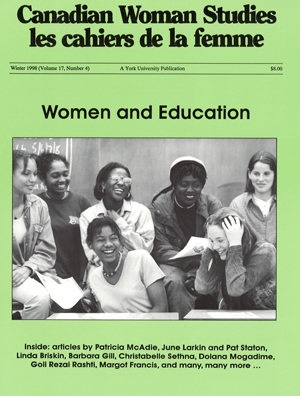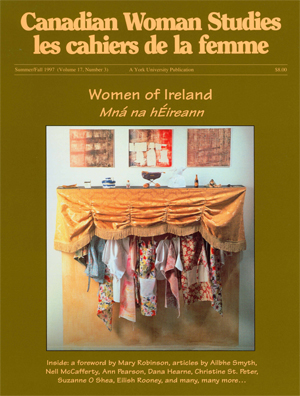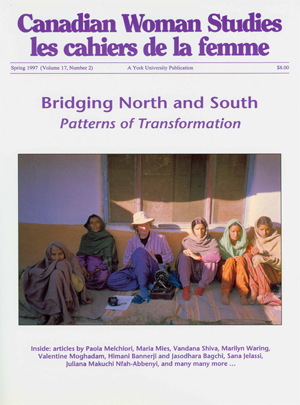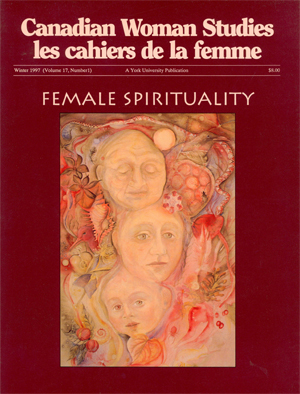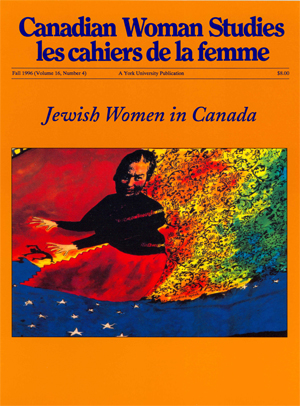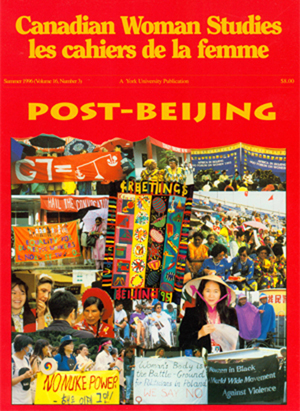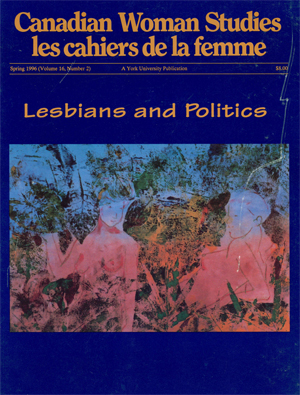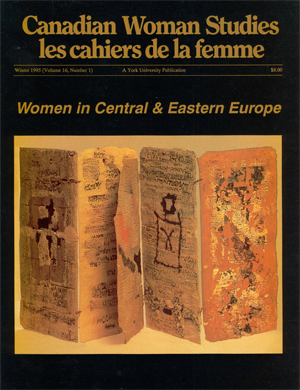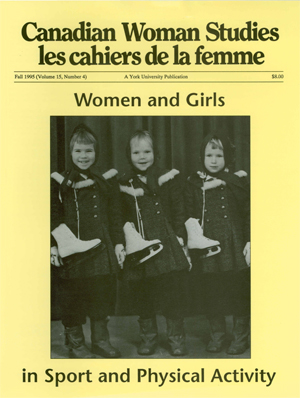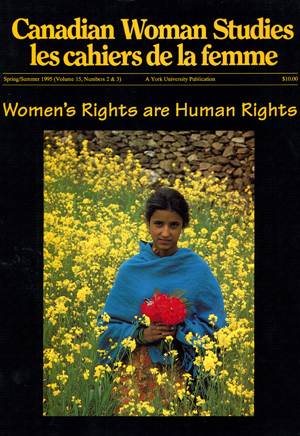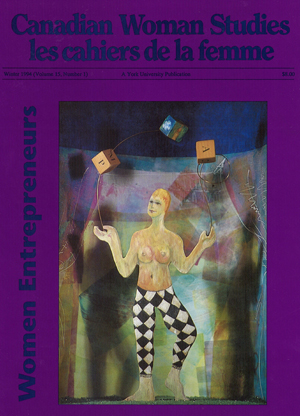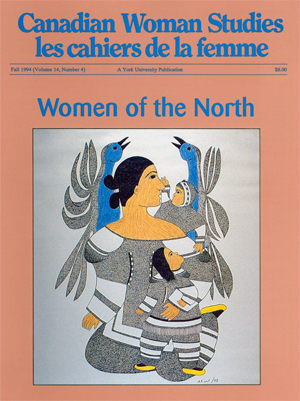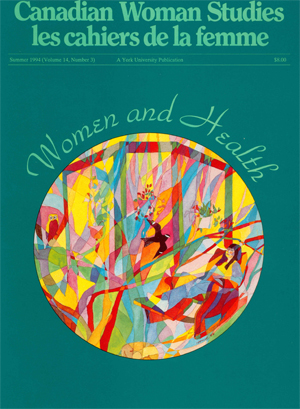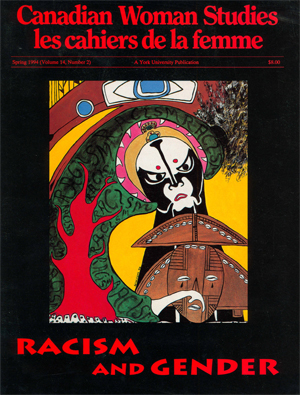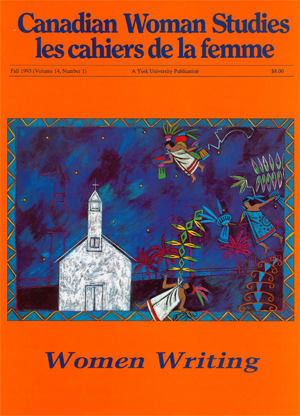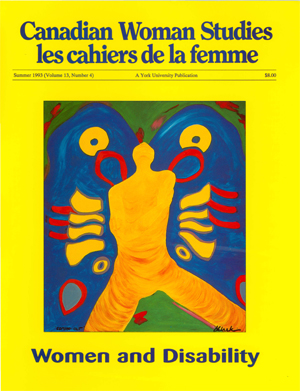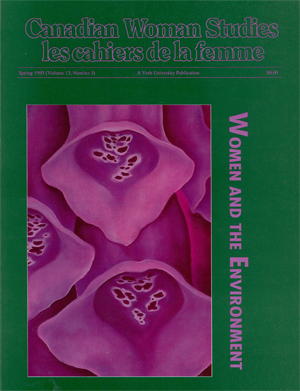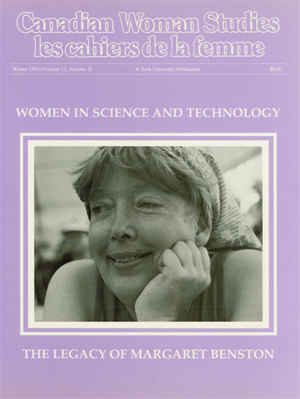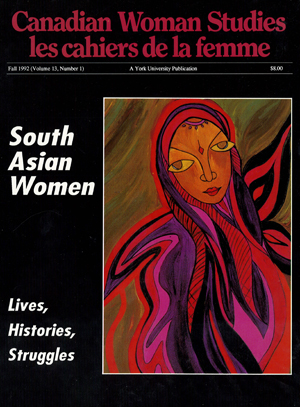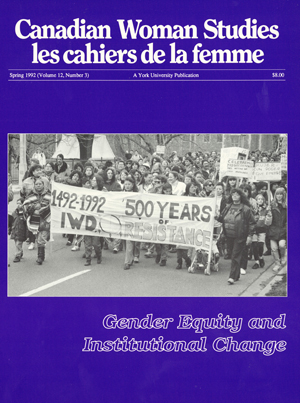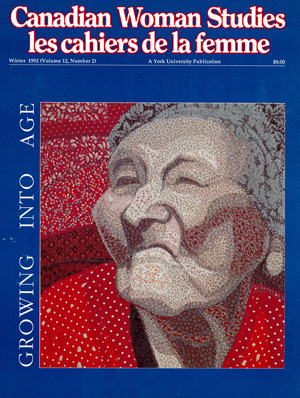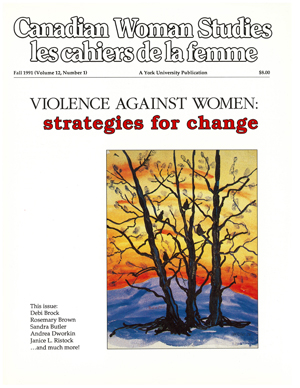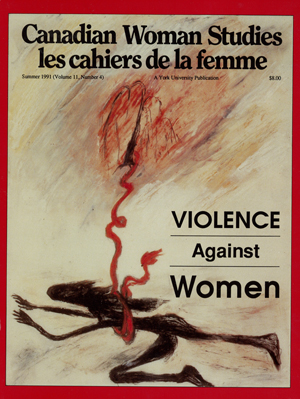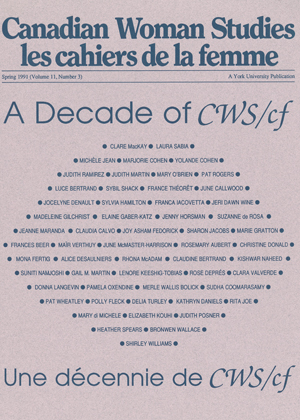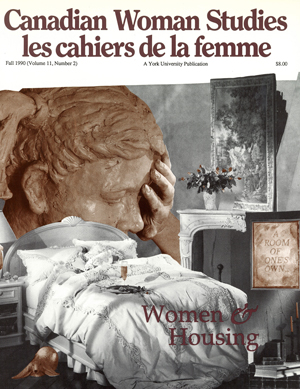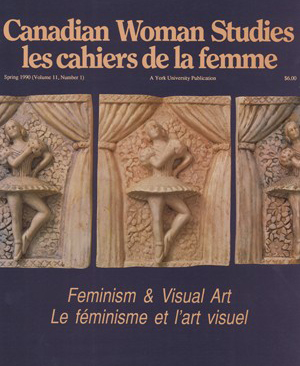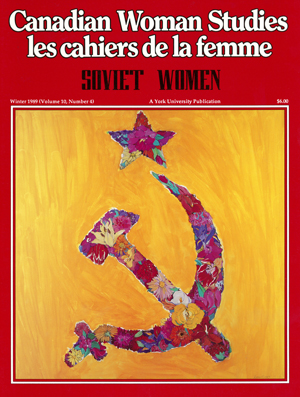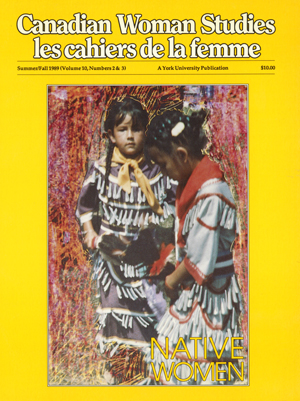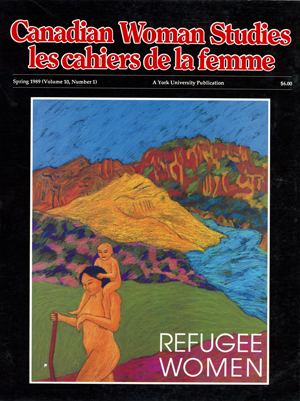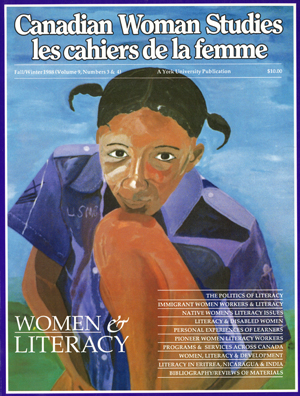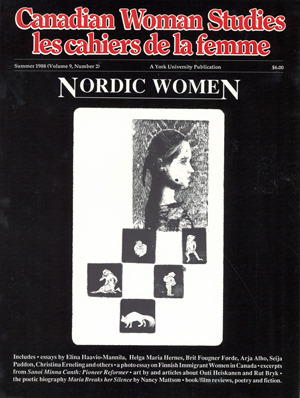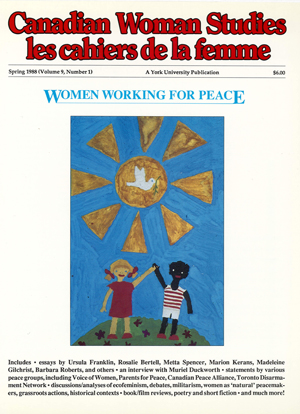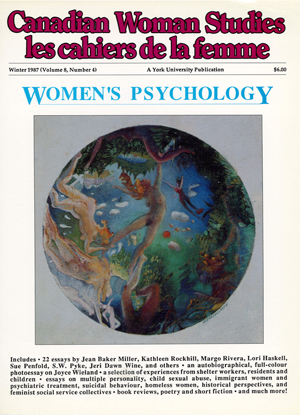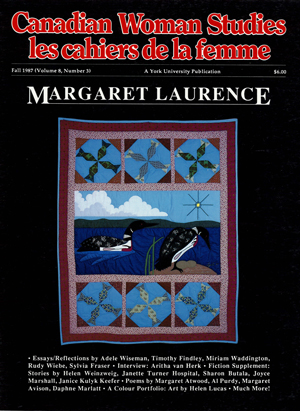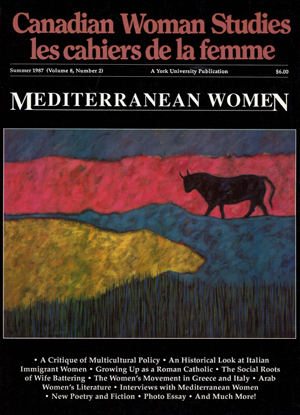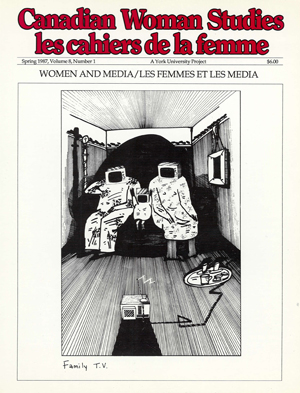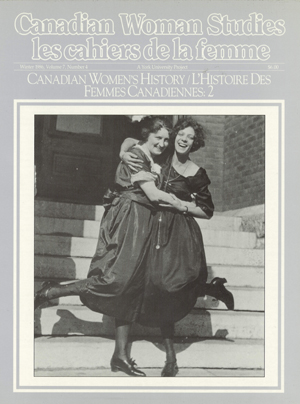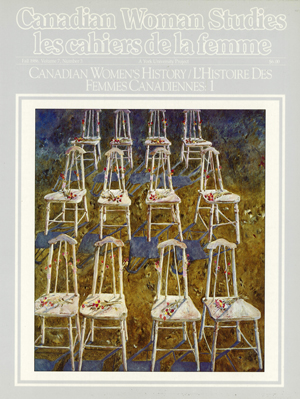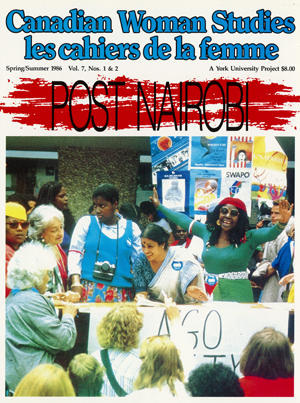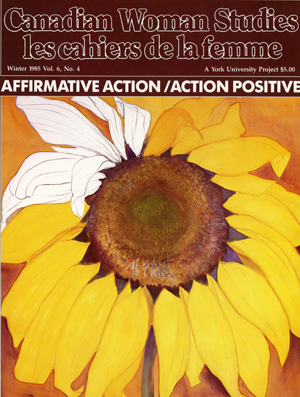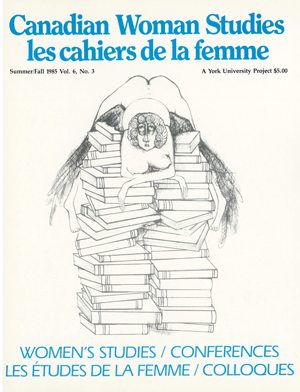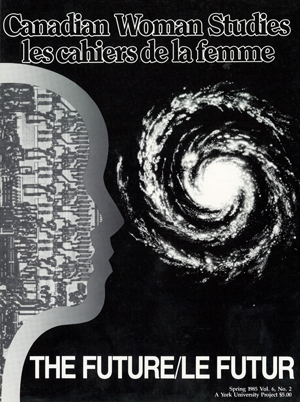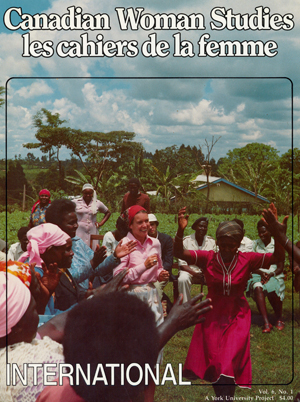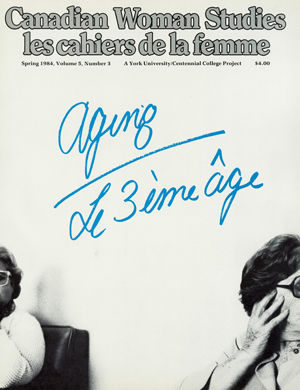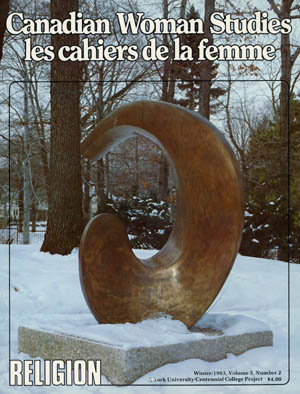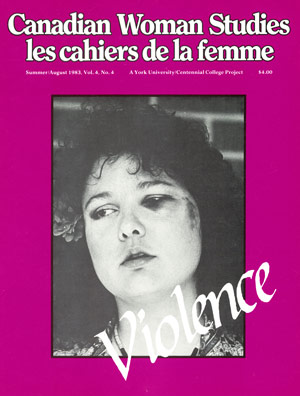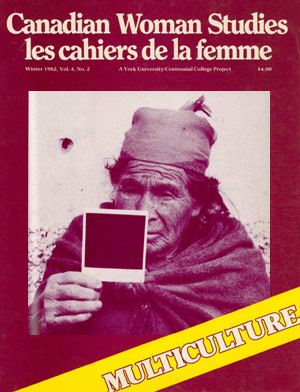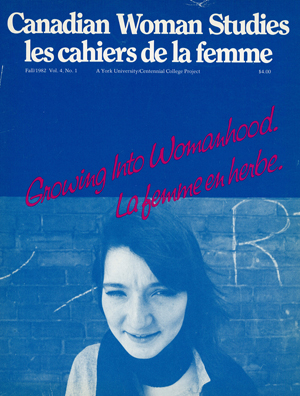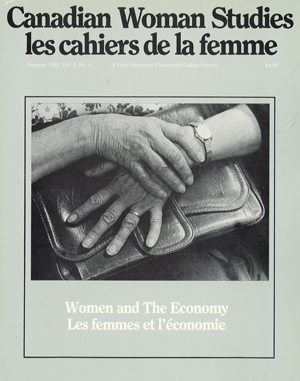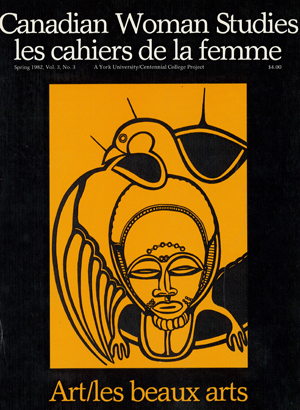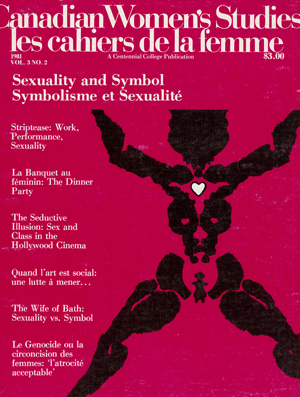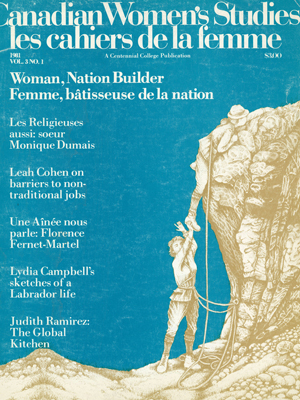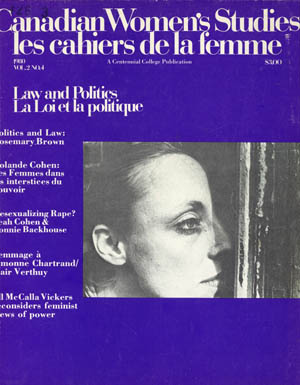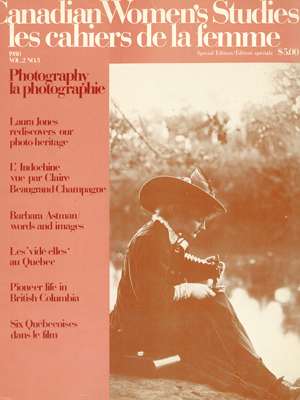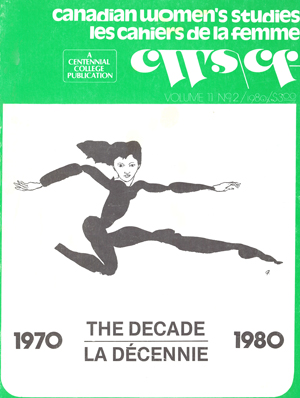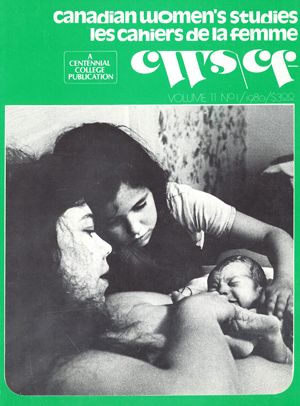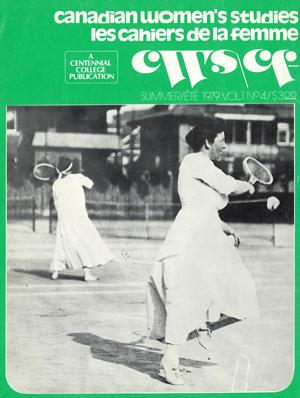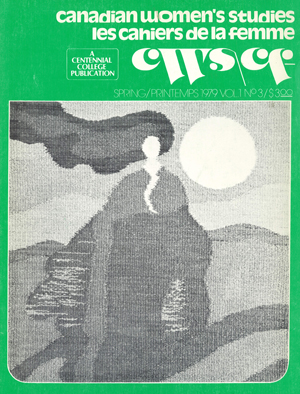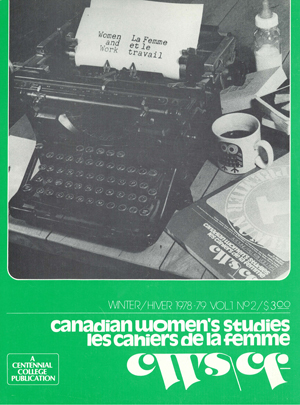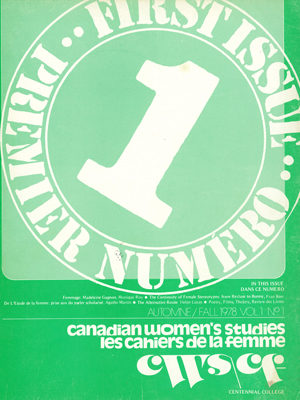Archives
-
Cuban Women: Politics, Culture and Revolution
Vol. 37 No. 1-2 (2024) -
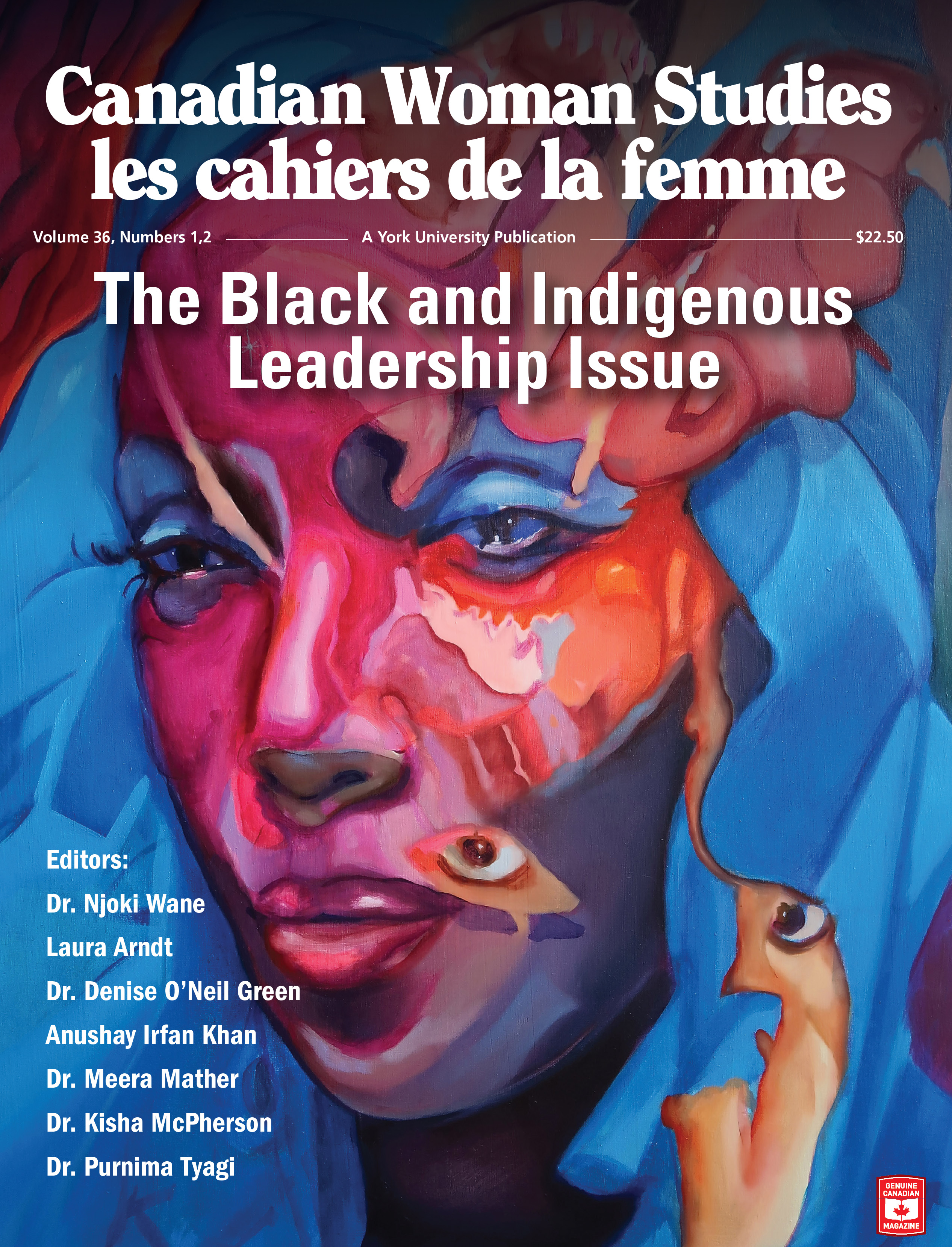
Black, Indigenous, and Racialized Women in Leadership
Vol. 36 No. 1,2 (2023)The advancement of women into leadership positions in organizations continues to be challenging. This reality is rooted in systemic and societal structures that disenfranchise women as they move through the corporate ranks or as they struggle to have their voices heard within their own communities. There is evidence that women are be-ginning to disrupt dominant gender ideologies by taking different approaches in their careers, within their specific professions. Women are taking risks and agreeing to take part in leadership in different organizations. However, despite all these efforts, women leaders continue to be underrepresented in every sector of society and this is more pronounced for those from marginalized groups, such as Black, Indigenous, and Racialized (BIR) women. For the few that hold leadership positions, little research and literature has been dedicated to their experiences in these roles (Jean-Marie et al.; Sanchez-Hucles and Davis). Research has shown that although Black, Indigenous, and Racialized women have made strides in various organizations, they continue to face personal, professional, systemic, and institutional challenges in reaching top leadership positions globally (Jean-Marie et al.; Sanchez-Hucles and Davis). Leadership as a concept has significant normative and political capacities, as well as consequences. The concept has been discursively overworked and theoretically underdone in policy and in literature. We have seen a multiplication of adjectival descriptors: instructional, visionary, moral, e-leadership, servant, entrepreneurial, distributive, transactional, transformational, emotionally intelligent leadership.
Over the last decade, research has been paying attention to what diverse leadership entails. Various authors have indicated that the purpose of diverse leadership is to increase the degree of inclusiveness and equity in an organization by challenging and altering the policies, practices, and beliefs that form the organizational system. This should be everyone’s concern, both whites and persons of colour, both men and women.
The articles in this special edition focus on the marginalization of Black, Indigenous, and Racialized women in leadership positions and highlight the challenges they face and how they have addressed them. The main objective of this edition is to contribute to the leadership discourse of Black, Indigenous, and Racialized women by centring on their narratives and lived experience.
Putting together a special edition on BIR women in leadership positions was both exciting and worrisome because of the scarcity of literature on research on this topic, especially within the Canadian landscape. However, the editorial board felt that within the context of women in leadership discourse, the special edition would create new pathways of understanding intersectionalities and leadership practices. By weaving BIR women’s leadership practices into learning, knowledge creation, and discourse, we felt that readers will have a better understanding of how BIR women’s roles play out in leadership. Some of the questions we have tried to address are: What is leadership? Does one need to be in a position of authority to be a leader? What does it mean to be a leader from marginalized communities? What does it mean to be an Indigenous female in a leadership position? What does it mean to be a Racialized female in a leadership potion? What does it mean to be a Black female in a leadership position? What strategies do women employ when they find themselves in positions of leadership? What do women in leadership positions bring to various organizations? From the articles that are represented in this edition, leadership does not only mean being a leader in an organization. You can be a leader in your community, among your peers, in your own home, etc.
In conclusion, more research needs to be done to high-light not only the challenges faced by BIR women, but to showcase their strengths, their perspectives on leadership, and their new strategies for being heads of a community, home, or organization.
-
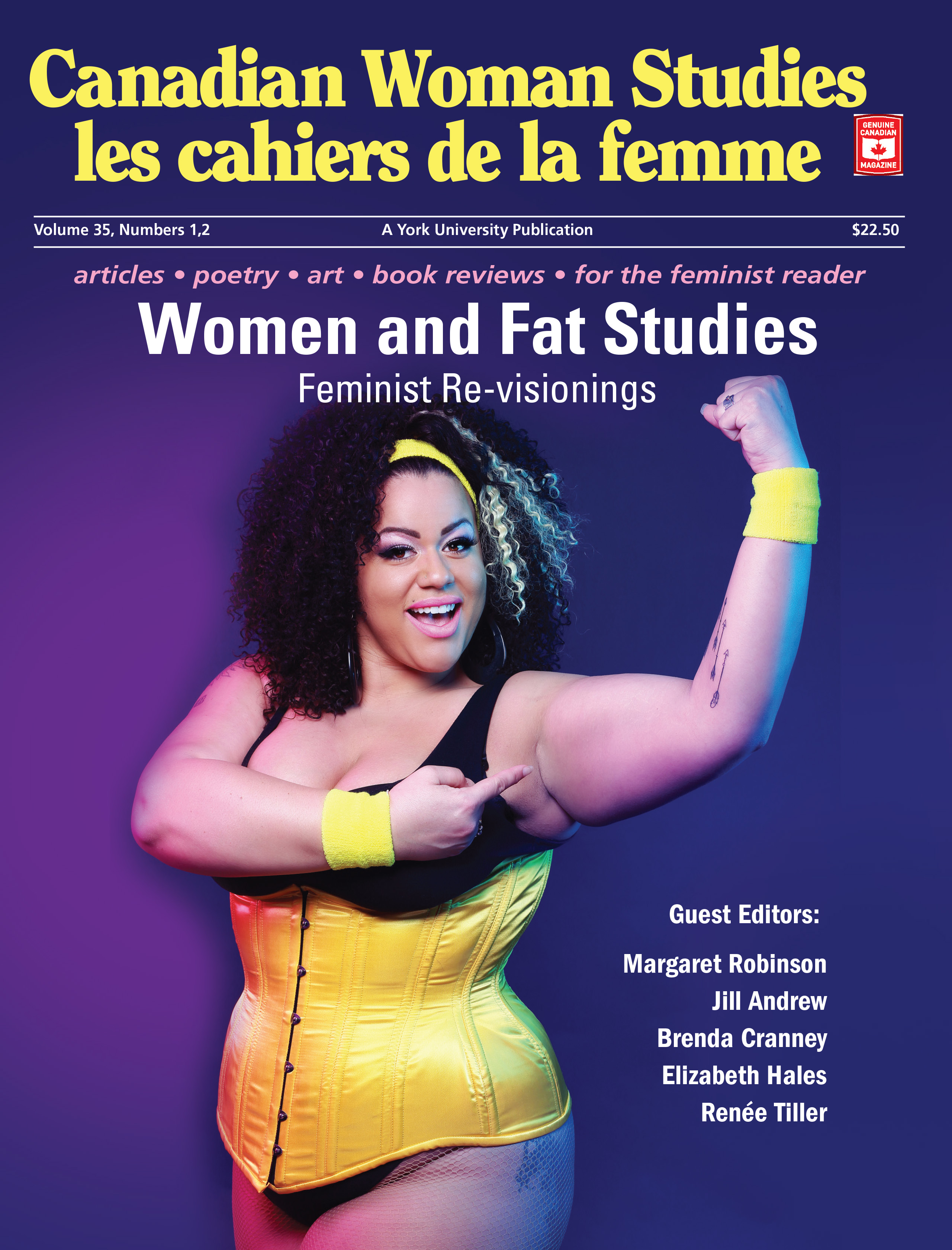
Women and Fat Studies: Feminist Re-visionings
Vol. 35 No. 1,2 (2022)We are pleased to bring you Women and Fat Studies: Feminist Re-visionings, in memory of Luciana Ricciutelli, managing and executive editor of Canadian Woman Studies since 1996. Before her death Luciana championed this timely special issue to capture the exciting growth of Fat awareness and debate within the feminist movement and Fat research in the academy.
Feminist movement is built by the hard-won voices and brave engagement of diverse women and their allies locally and globally challenging their own varied patriarchies in social, economic, and cultural institutions, and each other. Radical and visionary feminist politics that engage intersecting patriarchal class, colonial, and racial oppressions are multi-centred—enriched and deepened by challenging dialogue and learning across and among the many voices and places of resistance.
In Section One, “Framing Fat,” articles raise crucial issues and key debates that Fat-centred perspectives bring to the feminist movement and to women and gender studies (Kristin Rodier) and to human rights discourse Megan Szczurko). The “Fat Liberation Manifesto” 1973 (Freespirit and Aldebaran) reprinted here shows that Fat power is not new to feminism.
Articles in Section Two, “Experience,” explore the personal cost of fat stigma confronted and contested by very different protagonists. Kelsey Ionnoni shares her experience as a fat pregnant woman and new mother. Renee Tiller traces her changing experience and understanding of fat phobia as a young “small fat” biracial woman; Jen Rinaldi and May Friedman?? report weight and weight stigma experiences of non-binary participantsfrom their larger research project with diverse non-cisconforming participants.
Articles in Section Three, “Engagement,” reveal pervasive fat phobia and oppression and personal and political resistance: in food justice activism (Leah Potvin); in the professional standards and socialization of the ‘caring’ professions (Rice et al); in “definitions of fatness, thinness, and eating disorders” (Madeleine De Welles); in dating app profiles (Jenn Clark); and in weight loss clinics (Diane Bracuk).
--
Nous sommes heureux de vous présenter Women and Fat Studies : Feminist Re-visionings, à la mémoire de Luciana Ricciutelli, directrice et rédactrice en chef de Canadian Woman Studies/les cahiers de la femme depuis 1996. Avant sa mort, Luciana a défendu ce numéro spécial qui arrive à point nommé pour rendre compte de la croissance passionnante de la sensibilisation et du débat sur les graisses au sein du mouvement féministe et de la recherche sur les graisses dans le milieu universitaire.
Le mouvement féministe est construit par les voix durement gagnées et l'engagement courageux de diverses femmes et de leurs alliés localement et mondialement défiant leurs propres patriarcats variés dans les institutions sociales, économiques et culturelles et les uns les autres. Les politiques féministes radicales et visionnaires qui engagent des oppressions patriarcales de classe, et de statut colonial et racial sont multicentriques - enrichies et approfondies par un dialogue et un apprentissage stimulants à travers et parmi les considérables voix et lieux de résistance.
Dans la première section, « Framing Fat », les articles soulèvent des questions cruciales et des débats clés que les perspectives centrées sur la graisse apportent au mouvement féministe et aux études sur les femmes et le genre (Kristin Rodier) et aux droits de la personne (Megan Szczurko). Le « Fat Liberation Manifesto » 1973 (Freespirit et Aldebaran) réimprimé ici montre que le pouvoir des graisses n'est pas nouveau dans le féminisme.
Les articles de la deuxième section, « Experience », explorent le coût personnel de la stigmatisation des obèses auquel sont confrontés et contestés des protagonistes très différents. Kelsey Ionnoni partage son expérience de femme grosse enceinte et de nouvelle mère. Renée Tiller retrace l'évolution de son expérience et de sa compréhension de la phobie de l'obésité en tant que jeune femme biraciale « petite obèse » ; Jen Rinaldi présente les résultats de son projet de recherche interactif plus large avec des participants transgenres et non-binaires sur « les expériences du poids et de la stigmatisation du poids ».
Les articles de la troisième section, « Engagement », révèlent l'omniprésence de la phobie des graisses et de l'oppression, ainsi que la résistance personnelle et politique dans divers contextes : dans le militantisme pour la justice alimentaire (Leah Potvin) ; dans les normes professionnelles et la socialisation des professions soignantes (Rice et al) ; dans les « définitions de la graisse, de la minceur et des troubles de l'alimentation » (Madeleine De Welles) ; dans les profils des applications de rencontre (Jenn Clark) ; et dans les cliniques d'amaigrissement (Dianne Bracuk).
-
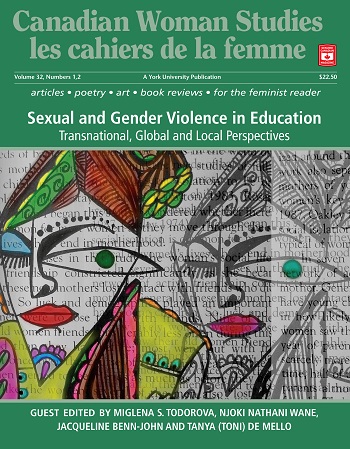
Vol 32, Nos 1-2 (2017-2018): Sexual and Gender Violence in Education: Transnational, Global and Local Perspectives
Special Issue: Sexual and Gender Violence in Education : Transnational, Global and Local Perspectives -
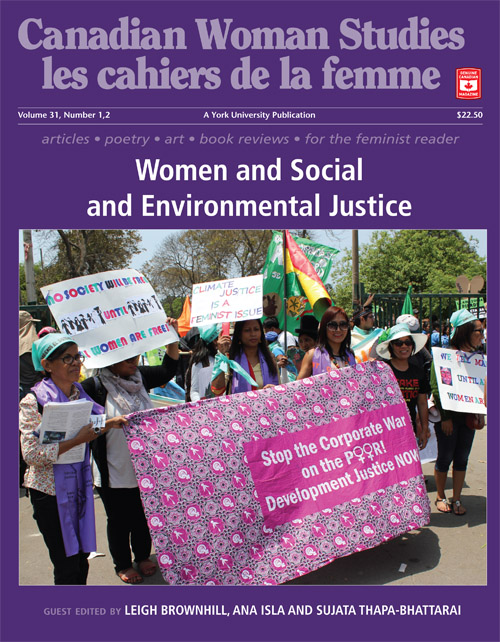
Vol 31, No 1-2 (2016-2017):Women and Social and Environmental Justice
Special Issue: Women and Social and Environmental Justice -
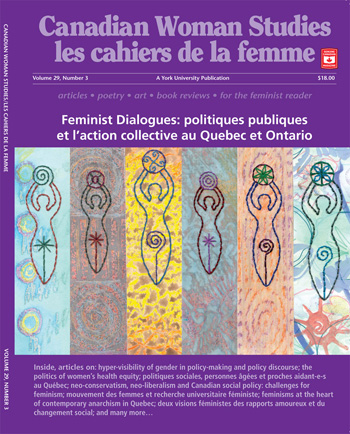
Vol 29, No 3 (2012)
Feminist Dialogues: Politiques publiques et l'action collective au Quebec and Ontario -
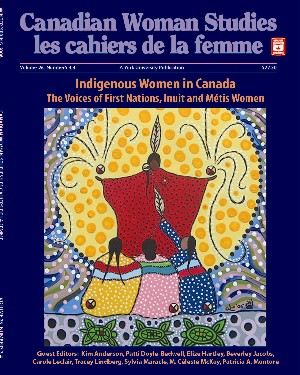
Vol 26, No 3-4 (2008)
Indigenous Women in Canada: the Voices of First Nations, Inuit and Métis Women

